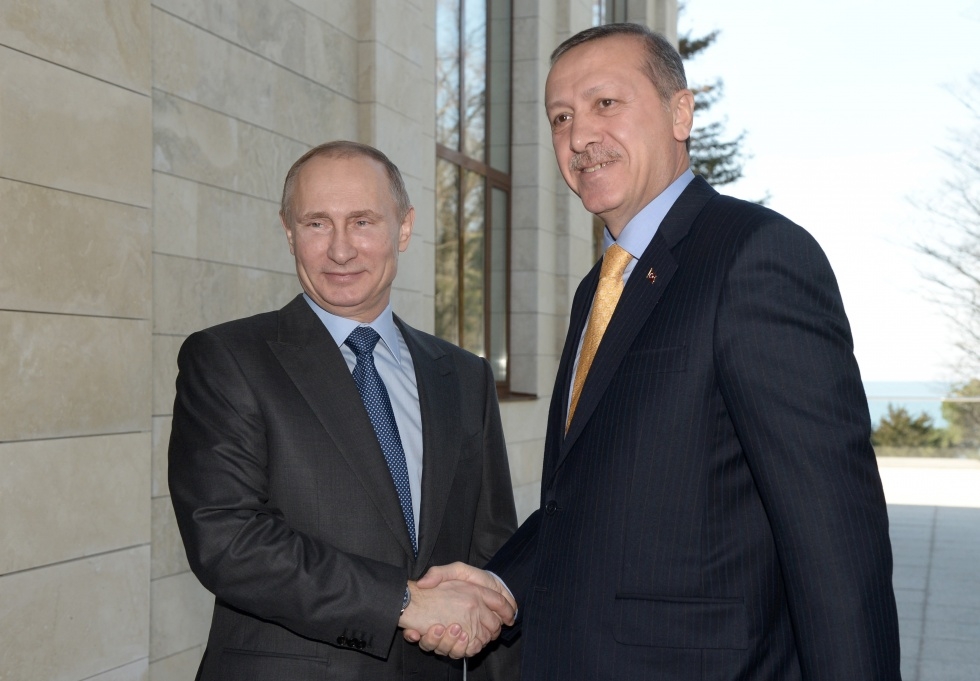Russia gives $1.39bn for Turkey's first nuclear plant

ANKARA – Russia on Thursday pledged to invest $1.39bn in Turkey’s first nuclear power plant, situated in Akkuyu in southern Turkey.
Turkey has had plans to establish nuclear power generation since 1970, a key aspect of the country's aim for economic growth, according to the World Nuclear Association, an international organisation that supports nuclear power. The country currently imports much of its energy, including nearly all of its oil and gas which amounted to more than $60bn in 2012, reports the organisation.
The announcement by Russia's state run nuclear company Rosatom’s subsidiary in Turkey, comes on the back of rising tensions over the plant.
Turkey and Russia first signed the agreement to build the plant back in 2010, but subsequent heel dragging has since held up the project, which was supposed to start construction in 2013, but has so far failed to get under way.
In February, further delays were announced when Russia seemingly failed to provide sufficient information about the environmental impact of the Akkuyu plant. This issue, however, now seems to be edging toward resolution with construction now estimated to begin in 2016 and the power plant expected to come online gradually between 2020 and 2023.
Stay informed with MEE's newsletters
Sign up to get the latest alerts, insights and analysis, starting with Turkey Unpacked
The project is estimated to cost around $20bn, with the recent Russian injection expected to go on supporting infrastructure such as roads and power lines. Under the 2010 agreement, Rosatom will build, own and operate the reactor.
Relations between Turkey and Russia have been complicated in recent years by the bloody civil in Syria. Moscow has been a fervent supporter of Syrian President Bashar al-Assad, while Turkey has backed the opposition forces embroiled in the three-year uprising against his rule.
Tensions have escalated this year over Russia’s involvement in Ukraine and its subsequent annexing of the southern Crimea region that borders on Turkey and is home to some 266,000 Sunni Muslim, Turkish-speaking Tartars.
During a visit to Japan on Thursday Turkish Foreign Minister Ahmet Davutoglu said he feared that the annexation of Crimea may lead to a domino effect in and around the Black Sea.
"Our concern is not only Ukraine. If this trend starts, which acts against territorial integrity, there are many other frozen conflicts like Trans-Dniester, Abkhazia and Nagorno-Karabakh," Davutoglu told Japanese media.
Back in March he was also quick to stress his concern over the issue.
“The future of our kin, the Tatars in Crimea, is the primary issue for us,” Davutoglu said. “Their peacefulness and composure are essential for Turkey. We are dedicated to doing everything necessary within this remit.”
Despite the potential fissure, however, Russia and Turkey share many economic ties. Key amongst this is the expansion of gas and oil pipelines. The two countries have repeatedly pledged to increase trade ties to $100bn a year by 2020.
According to the World Nuclear Association, a second nuclear plan is to be built by a Franco-Japanese consortium at Sinop along Turkey's Black Sea coast.
Middle East Eye delivers independent and unrivalled coverage and analysis of the Middle East, North Africa and beyond. To learn more about republishing this content and the associated fees, please fill out this form. More about MEE can be found here.

